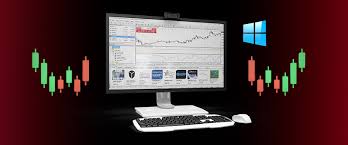Forex, the global marketplace for trading national currencies, evolves constantly, making it essential for traders to adapt with flexible strategies. Whether you’re new to forex or a seasoned participant, understanding how to leverage competitive spreads and dynamic approaches can significantly impact your trading success.
The forex market operates across different time zones, offering unparalleled opportunities. With currency values fluctuating due to economic factors, geopolitical events, and market trends, traders need to stay informed to make calculated decisions. Utilizing flexible strategies allows traders to respond to these shifts in real time, minimizing risks and maximizing profit potential.
A significant advantage in forex trading is the use of competitive spreads. Spreads, the difference between the bid and ask price, play a crucial role in determining trading costs. Lower spreads mean reduced expenses and higher profitability margins for traders. By focusing on currency pairs with tighter spreads, traders can execute trades more cost-effectively while maintaining agility in a fast-moving market.
Risk management is another vital component when navigating forex. Employing stop-loss orders, taking advantage of leverage thoughtfully, and diversifying currency pairs can safeguard your investments. Traders who prioritize risk management can weather market fluctuations more effectively, enabling sustainable growth.
Effective strategy hinges on staying updated with market trends and data analysis. Economic indicators, interest rates, and global news often influence currency movements. Regularly analyzing historical data and using charting tools equips traders with the insight needed to identify trading patterns and opportunities.
Forex trading also benefits from its high liquidity and accessibility. This means that trades can be executed quickly, and the market remains open 24 hours a day on weekdays, providing flexibility to traders around the globe. The ability to trade various currency pairs ensures diverse opportunities, catering to different trading preferences and goals.
To achieve long-term success, traders must combine disciplined approaches with continuous learning. Adapting strategies based on experience, trends, and market changes enhances profitability and sustains momentum in the competitive world of forex trading.


